Otello♪, G. Verdi, the 17.
Don Carlo♪, G. Verdi, the 18.
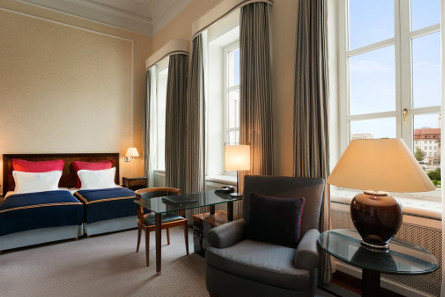
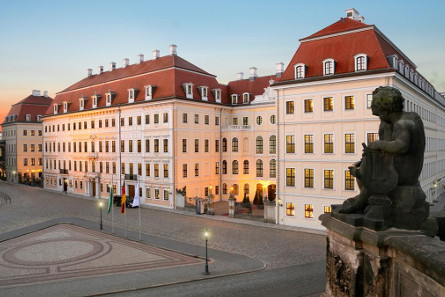
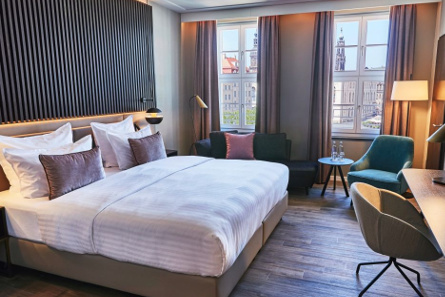
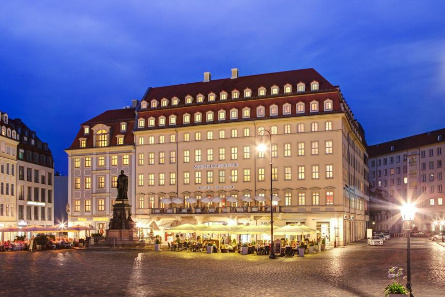
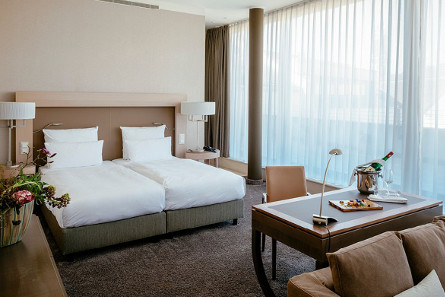
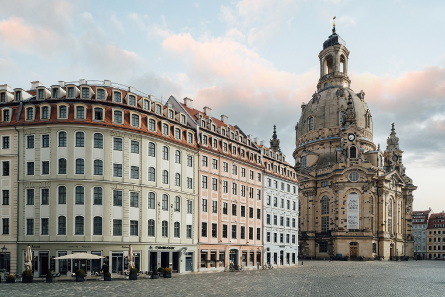

from Thursday 16 to Monday 20 May 2024,
4 nights
Arrangement 32, Pentecote
Arrangement 32, Pentecote
Otello
G. Verdi
G. Verdi
At the age of 70, Giuseppe Verdi (1813-1901) created "Otello", one of his most famous works, based on the drama of the same name by William Shakespeare - "Othello, the Moor of Venice". The opera is set at the end of the 15th century in Cyprus, which at that time is ruled by Venice. Otello, lord of the island, and his wife Desdemona fall victim in the course of the plot to the vicious and infamous intrigues of Iago, who acts out of base motives. The premiere at the Teatro alla Scala in 1887 was an indescribable triumph for Verdi, who had not composed an opera for 16 years by then and had actually already retired. After Verdi had already worked successfully with the librettist Arrigo Boito, himself a renowned composer and writer, in a new arrangement for "Simon Boccanegra", the two musicians collaborated again in 1879. Verdi was enthusiastic about Boito’s opera text for "Otello" and began composing it. With "Otello", the composer treads new musical paths and breaks with the old schemes of arias, duets or recitatives. A continuous structure and coherent entities characterise Verdi’s grandiose and psychologically subtly staged mature work.
John Fiore - Vincent Boussard
Hrachuhí Bassénz, Gregory Kunde, Alexeij Isaev
Semperoper
Don Carlo
G. Verdi
G. Verdi
Giuseppe Verdi’s (1813-1901) grand and full-length opera “Don Carlos” is based on Friedrich Schiller’s drama “Don Karlos, Infant of Spain”. The French original of 1867 was first performed in Paris, belongs to the genre of the Grand Opéra, was Verdi’s third commissioned work for the Paris Opera and has five acts; a second, shorter version was not performed until 17 years later at the Teatro alla Scala in Milan. Unlike the first version, this one contains four acts and has an Italian libretto instead of a French one. This also explains the two different spellings of the work: "Don Carlos" / "Don Carlo".
It is now known that seven different versions of the opera exist. After massive criticism, the composer was repeatedly forced to make changes and cuts to his work, as the first version, with almost five hours of playing time, was too lengthy even for the Parisian audience - an educated and music-loving audience that was quite used to the lengthy duration of the large-scale and epic Grand Opéra. After the second version had been favoured until the end of the 20th century, theatres today tend to favour the first, longer version, since in it the plots and motivations of the characters can be presented much better and more coherently.
It is now known that seven different versions of the opera exist. After massive criticism, the composer was repeatedly forced to make changes and cuts to his work, as the first version, with almost five hours of playing time, was too lengthy even for the Parisian audience - an educated and music-loving audience that was quite used to the lengthy duration of the large-scale and epic Grand Opéra. After the second version had been favoured until the end of the 20th century, theatres today tend to favour the first, longer version, since in it the plots and motivations of the characters can be presented much better and more coherently.
Jordi Bernacer - Vera Nemirova
Elena Guseva, Yulia Matochkina, Stefan Pop, Christoph Pohl, Alexandros Stavrakakis, Taras Shtonda, Elena Guseva
Semperoper
Concert of the Staatskapelle Dresden, the 19.
Christian Thielemann♪
Christian Thielemann
Christian Thielemann has been one of the great German conductors of our time for years. Born in 1959 in what was then West Berlin, he began his professional career in his native city at the Deutsche Oper under none other than Herbert von Karajan (1908-1989). Via various stations in Karlsruhe and Düsseldorf, among others, he moved to Nuremberg in 1988 as - at that time - the youngest General Music Director. Nine years later, Thielemann returned to Berlin to the Deutsche Oper, then led the Munich Philharmonic from 2004 to 2011, in each case also in the positions of general music director. Thielemann has been involved with the Bayreuth Festival since 2010. In 2015, he was appointed music director there. In the 2012/13 season, he moved to Dresden to join the Sächsische Staatskapelle, and in 2013 he additionally took on the position of artistic director at the Salzburg Easter Festival. Christian Thielemann maintains close ties with the Berlin and Vienna Philharmonic Orchestras.
Thielemann has received numerous awards and honors for his achievements, including his honorary doctorate from the Hochschule für Musik ´Franz Liszt` Weimar, the Richard Wagner Prize, the Prize of the Foundation for the Promotion of the Semper Opera, and honorary membership of the Royal Academy of Music in London and the Gustav Mahler Association Hamburg.
Thielemann has received numerous awards and honors for his achievements, including his honorary doctorate from the Hochschule für Musik ´Franz Liszt` Weimar, the Richard Wagner Prize, the Prize of the Foundation for the Promotion of the Semper Opera, and honorary membership of the Royal Academy of Music in London and the Gustav Mahler Association Hamburg.
Klavier: Lang Lang
Semperoper
Kat’a Kabanova, L. Janaček, the 19.
Alejo Perez - Calixto Bieito
Christa Mayer, Amanda Majeski, Nicole Chirka, Martin Mitterrutzner, Kurt Rydl, Dmitry Golovnin
Semperoper
Hotel informations for Dresden 32


Taschenbergpalais Kempinski *****
The Taschenbergpalais was built in the 18th century by Augustus the Strong for his mistress Countess Cosel and will reopen in February 2024 after extensive renovation as the luxurious Grand Hotel Taschenbergpalais Kempinski Dresden *****. Located in the heart of the historic old town, you will stay in spacious and stylishly elegant rooms and suites in a regal ambience. The "Kastenmeiers" fish restaurant, including a sushi and oyster bar, and the "Palais" restaurant with classic international cuisine ensure your physical well-being. You can relax in the wellness area. The Semper Opera House is located directly opposite the hotel.


Steigenberger Hotel de Saxe ****
The Steigenberger Hotel de Saxe **** is ideally located next to the Frauenkirche in the heart of the city and only a few minutes walk from the Semper Opera House. You will be charmed by the elegance of its 185 well-equipped rooms and suites and by the view from the terrace of its restaurant, which serves both Saxon and international specialities. A wellness area with sauna and spa is also at your disposal.


Townhouse Dresden ****
Offering an ideal location next to the Frauenkirche in the heart of the city and only a few minutes from the Semper Opera, the Townhouse Dresden **** offers a unique atmosphere. The elegance of the nineteenth century is combined with modern facilities to create an amazing environment. It offers 95 rooms well equipped and you will be seduced by the stunning view to the dome of the Frauenkirche from the hotel bar at the sixth floor.
All-inclusive price per person for Dresden 32
Single room/ night
Taschenbergpalais Kempinski
2.580,- Euro
100-200,- Euro
Steigenberger Hotel de Saxe
1.590,- Euro
60-100,- Euro
Townhouse Dresden
1.350,- Euro
60-150,- Euro

The price includes
Overnights including breakfast, good opera tickets, travel cancellation expenses insurance.





